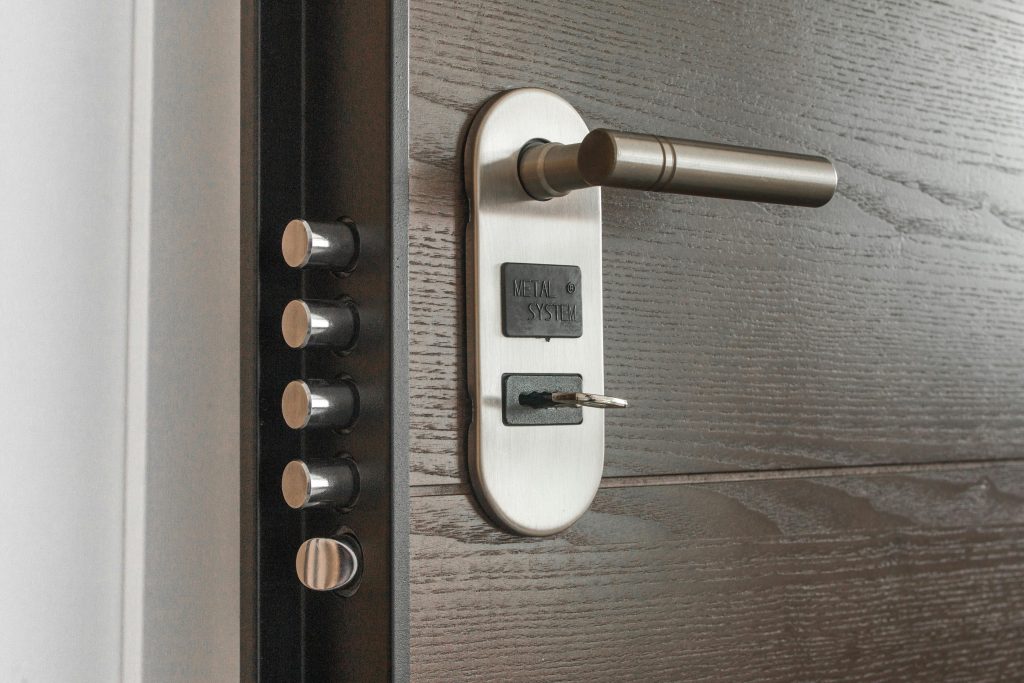When was the last time you thought about the locks on your external doors? If you can’t remember, you’re not alone. Many homeowners tend to overlook their locks until they encounter an issue, such as a stubborn key that won’t turn or a lock that feels rusty and unyielding.
But just like any other home feature, locks require regular maintenance to function properly. In this guide, we’ll explore the importance of lock maintenance and outline when you should hire a professional instead of trying to fix issues yourself.
Why Lock Maintenance Matters
Locks are your first line of defence against intruders. An effective, well-maintained lock ensures that your property—and everything in it—is secure, while a malfunctioning lock can lead to vulnerabilities, increasing the risk of break-ins that can threaten your family’s safety and the security of your valuables.
Regular maintenance not only extends the life of your locks but also enhances their performance. So, by taking a few proactive measures – or hiring a professional to do them for you – you can keep yourself and your possessions safe while extending the longevity of your lock systems.
5 Signs Your Locks Need Attention
Often, homeowners don’t realise that their lock is beginning to fail before it finally breaks entirely. Some signs indicating your locks might need professional care include:
- Sticking Or Stiff Mechanics: If your key is hard to turn or the lock feels resistant, it’s a clear sign that it may require lubrication or replacement.
- Rust Or Corrosion: If you notice discolouration or rust forming around the keyhole or on the lock’s surface, this can compromise the mechanics of the lock.
- Unusual Noises: Grinding, clicking, or popping sounds while operating the lock can suggest internal damage.
- Worn-Out Keys: If your keys are beginning to show significant wear, they might not fit well in the lock anymore, which can lead to jamming.
- Locks Falling Loose: If the locks feel shaky or are coming loose from the door, it might be time for a deeper inspection.
When you notice any of these signs, you should seek advice from a professional locksmith, as ignoring these issues can lead to more severe problems in the future.
7 Essential Lock Maintenance Tips
Now that you understand the importance of regular lock maintenance, here are some straightforward tips you can implement yourself or outsource to a professional to keep your locks functioning efficiently:
- Regular Cleaning
Keeping your locks clean is crucial for their longevity. Dust, dirt, and grime can all accumulate, potentially affecting their operation.
Use a soft cloth to wipe the exterior of the lock, paying special attention to the keyhole. You can also use a can of compressed air to blow out any debris that might be residing within the lock cylinder.
- Use A Lubricant
One of the simplest yet most effective ways to maintain your locks is through lubrication. Use a graphite-based lubricant or a silicone spray; these options are preferable over oil-based lubricants as they won’t attract dirt and dust.
Insert the nozzle into the keyhole and apply a small amount, turning the key a few times to spread the lubricant evenly inside. Avoid using WD-40, as it’s not designed specifically for locks and can create more problems.
- Check Hardware And Installations
Ensure that all screws and mounting hardware are tight and secure. If locks are loose, it can affect their functionality and security.
If you notice any loose hardware, tighten it or consider replacing the hardware to ensure that the locks perform optimally.
- Use The Correct Key
Ensure you are always using the correct key for your locks! Trying to force a key that doesn’t fit can cause unnecessary wear and tear, leading to more significant issues down the road.
- Don’t Over-turn The Key
Be gentle with your keys! Over-turning can cause internal components of the lock to wear down more quickly. If your lock feels stuck, avoid forcing it. Instead, check for possible misalignments with the door and see if debris is blocking the keyway.
- Inspect Regularly
Set a reminder to inspect all your locks regularly—at least once every few months. Look for any of the signs discussed earlier and address them promptly.
- Consider Weatherproofing
If your locks are exposed to the elements, consider using weatherproofing treatments. Look for protective sprays or sealants that can provide an added layer of defence against rain, snow, and other weather conditions that might degrade your locks over time.
Be Proactive With Your Home Security
Maintaining your locks is a vital part of keeping your home secure. By taking the time to clean, lubricate, and inspect your locks, you can substantially extend their life and ensure that they function properly when you need them most.
Investing a little effort into your lock maintenance can yield long-term benefits, including enhanced security and peace of mind. However, if you ever encounter a lock or key issue that proves beyond your DIY capabilities, ensure you call a professional to guarantee your home remains safe and secure.

